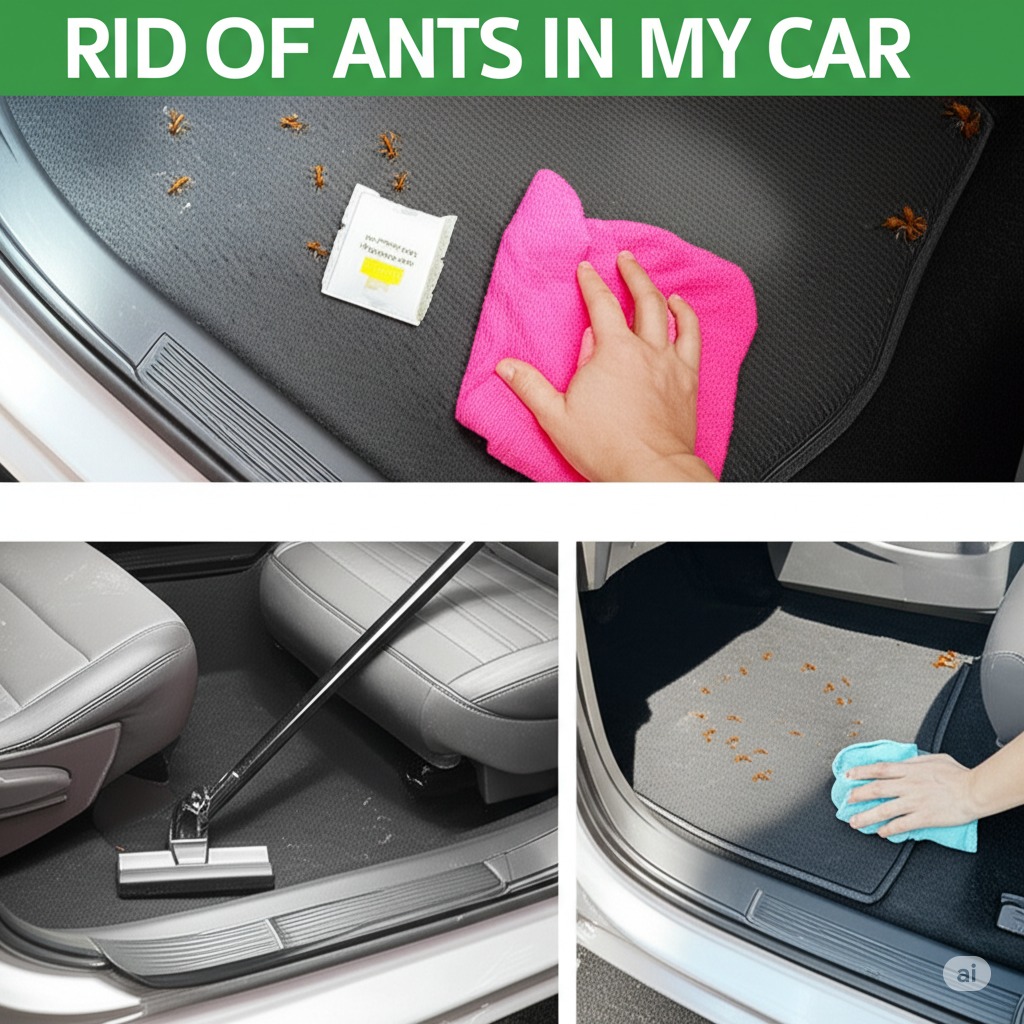Ants are one of nature’s most industrious creatures, but their presence can become a nuisance, especially when they invade spaces where they are not welcome, such as your car. While ants in the natural world contribute to the ecosystem by aerating soil and decomposing organic material, their foray into your vehicle can lead to discomfort and damage. Understanding why ants are attracted to your car is crucial, as it can help you address the root of the problem and prevent future infestations.
In this article, we will explore the sources of ant infestations in your vehicle, offering insight into how these tiny invaders gain access. We will then discuss effective natural remedies for removing ants from your car, emphasizing environmentally friendly and safe solutions. Finally, we will provide preventive measures to ensure your car remains an ant-free haven. By following these comprehensive guidelines, you can tackle an ant problem with confidence and maintain the integrity of your vehicle.
Identifying Ant Infestation Sources in Your Car
Identifying the source of an ant infestation in your car is the first essential step in effectively addressing the issue. Ants are primarily driven by the need to find food and shelter. Hence, a car that provides these elements becomes an attractive spot. Start by inspecting the interior of your car for any food crumbs or spills, as these are primary attractions for ants. Even tiny crumbs or sticky residues from beverages can be enough to lure ants into your vehicle.
Additionally, consider the parking environment. Cars parked near trees, gardens, or areas with high ant activity are more susceptible to infestations. Ants can easily travel from these locations into your car, especially if it is stationary for long periods. Inspect your parking spot for visible ant trails or nests nearby, which could serve as a clue to their point of entry.
It’s also important to check less obvious areas of your car for possible entry points. Ants can enter through small gaps around windows, doors, and other car seams. These are typically unnoticed but provide easy access for ants. By sealing these gaps or using natural repellents, you can significantly reduce the likelihood of ants entering your car.

Effective Natural Remedies for Ant Removal
Once you have identified the sources of ant infestation, the next step is implementing effective remedies to remove them. Many prefer natural methods as they are safer for human health and the environment. One popular natural remedy involves using diatomaceous earth, a fine powder made from the fossilized remains of tiny aquatic organisms. When ants come into contact with diatomaceous earth, it dehydrates them, effectively eliminating them without harmful chemicals.
Another effective natural remedy is the use of essential oils, such as peppermint or tea tree oil. These oils have strong scents that deter ants. Mix a few drops of essential oil with water in a spray bottle and apply it to areas of your car where ants are prevalent or likely to enter. This not only helps in repelling ants but also leaves your car smelling fresh.
Vinegar is another simple yet powerful natural solution. The acidity of vinegar disrupts the ant’s scent trails, making it difficult for them to navigate. Mixing vinegar with water in equal parts and spraying it in the affected areas can confuse and deter ants from returning. Regular application can keep your car free from ant trails.
Preventive Measures to Keep Your Car Ant-Free
Preventing future ant infestations is as important as dealing with the current problem. Regular cleaning of your car’s interior can significantly reduce the chances of ants finding food. Vacuum the seats, mats, and other areas to remove food particles and residues. Paying attention to small crevices where crumbs might accumulate is key.
Sealing your car is another preventive strategy. Use weather stripping to cover gaps and ensure windows and doors close tightly. This minimizes entry points for ants and other pests. Additionally, consider using natural repellents such as bay leaves or cinnamon sticks within your car. These not only act as deterrents but also add a pleasant aroma to your vehicle.
Lastly, be mindful of where you park your car. Avoid parking near known ant habitats and regularly check your parking area for ant activity. By being proactive and vigilant, you can maintain an ant-free environment in your vehicle and ensure comfortable and safe travels.
In conclusion, while ants play a crucial role in the ecosystem, their presence in your car is undesirable. By understanding how they gain access, utilizing natural removal methods, and implementing preventive measures, you can effectively manage and prevent ant infestations. Keeping your car clean, sealed, and wisely parked are simple yet effective strategies to ensure your car remains an unwelcome zone for ants. With these comprehensive steps, you can enjoy a pest-free driving experience.

